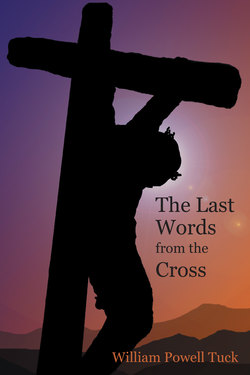Читать книгу The Last Words from the Cross - William Powell Tuck - Страница 7
На сайте Литреса книга снята с продажи.
ОглавлениеPreface
John Stott reminds us that although the cross is without question the central symbol of the Christian faith today, that was not always the case. At first the early church avoided it because of its shameful association with the execution of common criminals. The symbols of the fish, peacock, a dove, or the athlete’s victory palm were some of the earliest Christian motifs as seen painted on the walls and ceilings of the catacombs.[1] Today many of the so called “growing” churches or the “prosperity gospel” churches or the churches that only want positive thoughts and not signs of weakness or defeat continue to avoid any image of the cross in their buildings. But can a church be an authentic Church and not focus on the cross? Jürgen Moltmann asserts that “As far as I am concerned, the Christian church and Christian theology become relevant to the problems of the modern world only when they reveal the ‘hard core’ of their identity in the crucified Christ…”[2] The Apostle Paul did not hesitate to put the cross at the center of his preaching. In 1 Corinthians 1:18-31 Paul declares that some may see the cross as a “stumbling block” or “foolishness,” but he proclaims it as the “wisdom and power of God.” Fred Craddock thinks that the primary reason that Paul had to preach the cross was “because the cross tells us how God is. God identifies with human suffering; God comes to us and suffers with us and sympathy is extraordinarily powerful.”[3]
I will never forget a course I had on the Atonement in seminary under James Tull. He made undeniably clear to me the New Testament emphasis on the cross and its centrality for the Christian faith. In a book, The Atoning Gospel, which Tull later wrote, he stresses the fact that no one can look at the cross with discerning eyes and believe that God makes light of sin. The cross reveals with poignant, stark, all-revealing illumination and unforgettable power what God thinks and feels of our sins.[4] Can anyone fully discern Jesus’ knowledge of his own impending death on a cross? Surely he did not have an advanced card describing exactly how the events of what came to be called the “Passion Week” would unfold. Whatever one says about the divinity of Jesus has to be understood in the light of his genuine humanity.
The words of our Lord on the cross have become very memorable. These words of Jesus have been designated as the seven last words. They are, of course, more than individual words. They are really sentences or fragments of sentences. One of these seven words is found in the Gospels of Matthew and Mark. Three of them are found in the Gospel of Luke, and three are recorded in John. No one gospel contains all of them. But, to me, that is a way of authenticating the gospels. Each writer drew on what he remembered or considered most important in those moments or what he had heard from others who shared their experiences.
“The cross is the surest, truest and deepest window on the very heart and character of the living and loving God,” N. T. Wright declares. “The more we learn about the cross in all its historical and theological dimensions, the more we discover about the One in whose image we are made and hence about our own vocation to be the cross-bearing people.”[5] The last words of Jesus on the cross reveal something about the significance of that cross event but also about how Jesus faced the event and its deeper meaning. These last seven words of Jesus on the cross give us insight into Jesus’ inner thoughts in these moments of dying, a deeper understanding of his suffering, and they provide us with a sense of the relevancy of our Lord’s suffering to address our own needs. These words reveal his personal agony, his concern for others, his forgiving spirit, his physical suffering, his ultimate trust and faithfulness in the One he had proclaimed. Even in his moments of forsakenness he still resisted the temptation to turn away ultimately from God’s will or deny the One who led him to this shameful death as he identifies with sinners. A study of the last words of Jesus on the cross can open for us, in a small way, a perspective on how Jesus met his death, but this emphasis may also instill a renewed vision of the deeper meaning and significance of the cross event – the central motif of the Christian faith. I want to express a special word of appreciation to Linda McNally for her careful proofreading of my original manuscript.
